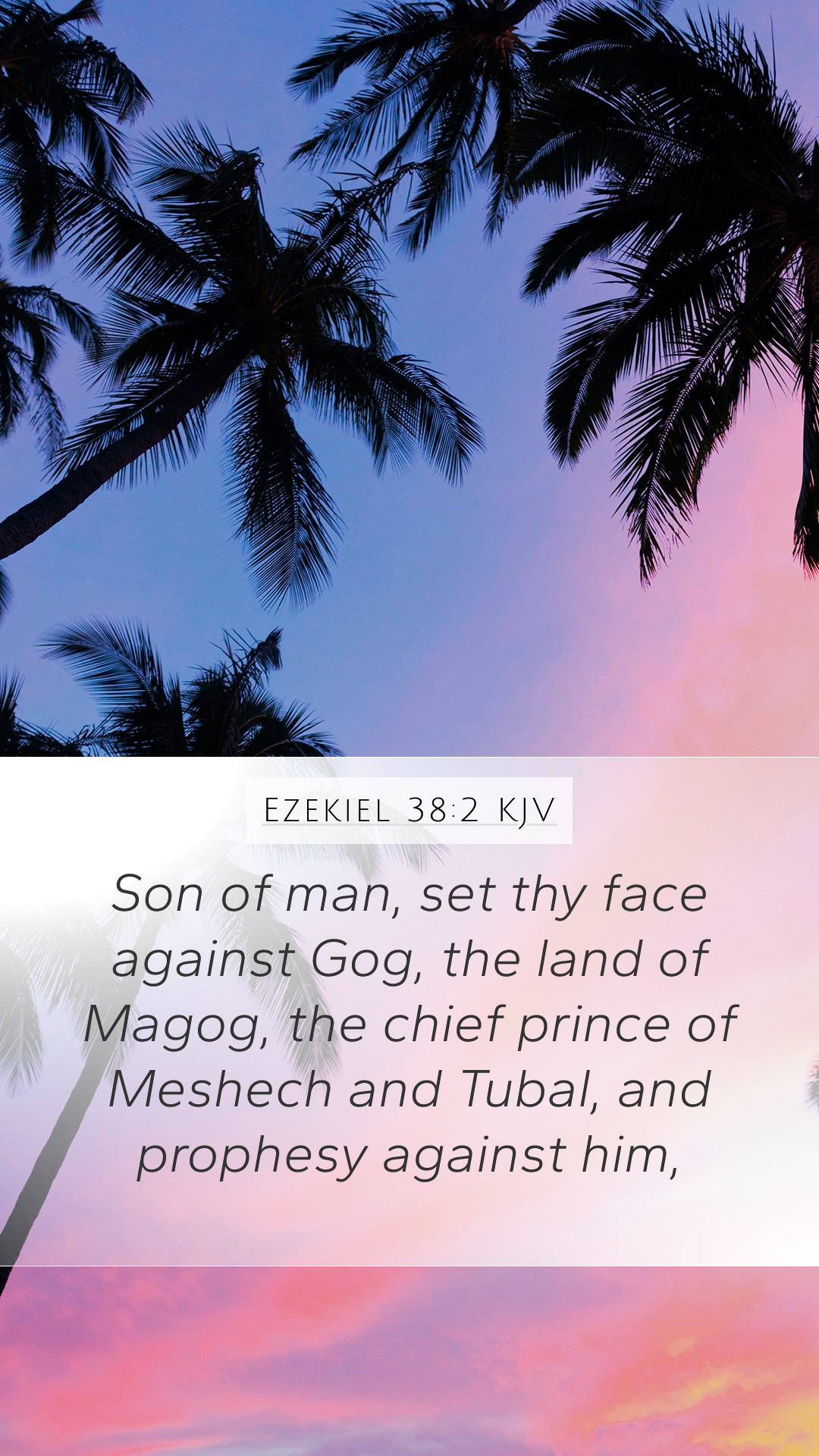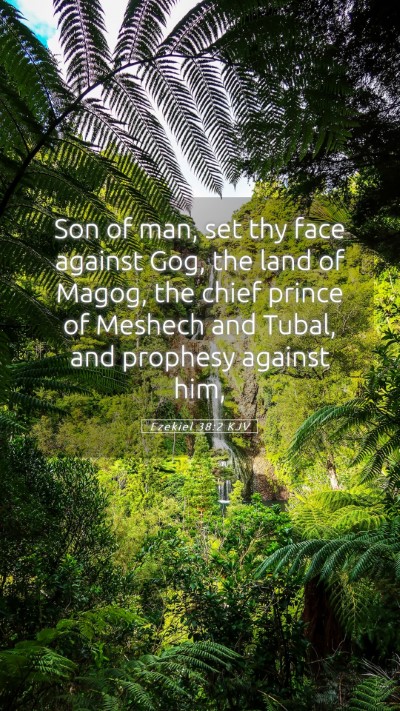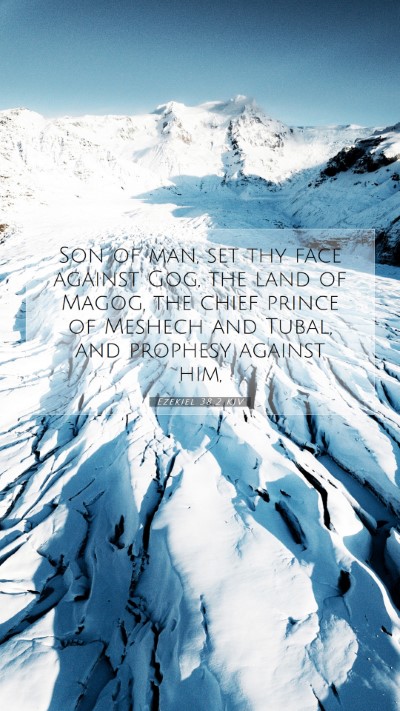Ezekiel 38:2 - Exploring Its Meaning and Significance
The verse Ezekiel 38:2 states:
"Son of man, set your face against Gog, of the land of Magog, the chief prince of Meshech and Tubal; prophesy against him."
This passage introduces a key prophetic figure, Gog, and the nations involved in the end-time conflict. Below is a detailed exegesis and commentary on this scripture, combining insights from public domain commentaries.
Overview of the Key Terms
- Gog: A prominent leader symbolizing opposition against God.
- Magog: A land whose exact location is debatable, representing hostile nations.
- Meshech and Tubal: Ancient regions or peoples associating with Gog, possibly tying to modern nations.
Interpretation and Analysis
In this prophecy, Ezekiel receives a divine command to confront Gog. Matthew Henry notes that Ezekiel is addressed as "son of man," highlighting his human role as a prophet. This suggests a dual aspect of authority, under God's direction but also in the capacity of a mortal vessel.
Albert Barnes provides insight into the significance of Gog and Magog within the context of prophetic scripture, often representing the enemies of God's people throughout history. This prophecy could be seen as a foreshadowing of end-time events, where these figures may emerge symbolically or literally in opposition to God's plan.
Adam Clarke elaborates on the geographical significance of Magog, Meshech, and Tubal, suggesting these terms may represent modern territories and people groups who are aligned against Israel in the prophetic narrative. This further emphasizes the ongoing relevance of this scripture to contemporary geopolitical climates.
Theological Implications
Theologically, Ezekiel 38:2 serves as a reminder of God's sovereignty over nations. The prophecy emphasizes that despite opposition and turmoil, God remains firmly in control of history and will ultimately vindicate His people. It encourages believers to trust in divine authority amid adversities, echoing the themes found in other parts of scripture.
Connections to Other Scriptures
This verse is related to several thematic elements present in other biblical texts. Here are some key cross-references:
- Revelation 20:8: Mentions Gog and Magog in the context of the final battle against God's people.
- Zechariah 14:2: Discusses nations gathering against Jerusalem, resonating with the themes of conflict found in Ezekiel.
- Genesis 10:2-3: Lists the descendants of Japheth, which includes areas associated with Magog and Meshech.
Application for Today's Believers
Understanding Ezekiel 38:2 holds practical significance for modern believers. It emphasizes the importance of standing firm in faith despite external challenges and the certainty that God's purposes will prevail. Here are key applicational insights:
- Believers are called to recognize and prepare for spiritual battles that may arise.
- It emphasizes the importance of prayer and intercession against forces of opposition.
- This verse assures believers of God’s ultimate authority over nations and world events, instilling hope during uncertain times.
Bible Study Resources
To deepen your understanding of this and related verses, consider utilizing the following Bible study tools:
- Bible Study Guides: Comprehensive guides for group discussions or personal study.
- Online Bible Study Platforms: Websites and apps providing access to various commentaries and translations.
- Bible Study Materials: Printed or digital resources that facilitate in-depth study of Old Testament prophecies.
Conclusion
In summary, Ezekiel 38:2 is a rich verse that invites profound exploration and reflection. Through diligent study, believers can glean insights on God's eternal sovereignty and the implications of prophetic messages.
The complexity and profundity of this verse resonate with contemporary faith challenges and provide a solid foundation for ongoing biblical scholarship and personal spiritual growth.


